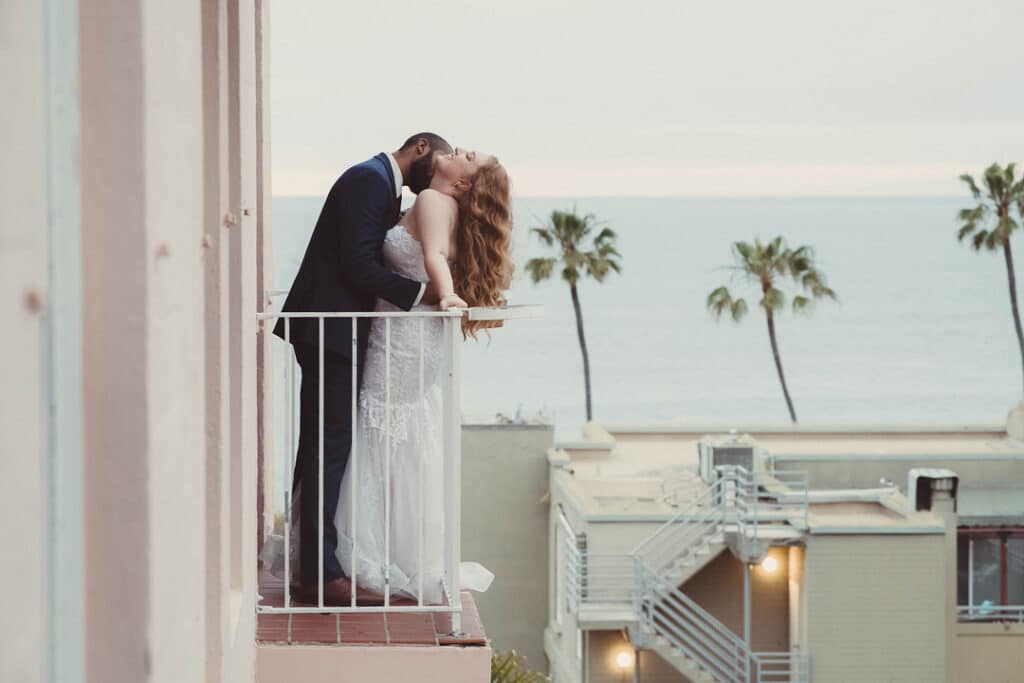
Psychology is, by definition, the study of the minds and behaviors of a group of people. It makes sense, then, that the fundamentals of psychology can be used in many fields, including photography: appreciating the needs, wishes, and actions of your clients can certainly help you make your business more profitable.
Yale graduate Jenika McDavitt of Psychology for Photographers fame chatted with us about how understanding your clients’ pain points differentiates your studio from the rest, and we’ve put together a list of our favorite tips that she shared. These helpful reminders will have you upping your game in no time!
Get in Their Heads
Jenika is a huge proponent of trying to think like a client. “A fundamental problem we have is that we experience life through our own lenses. We see problems from our perspectives, and so as photographers, we know what photography is like,” she says. “We know what things we offer and we know the kind of experience we can give people, so when we market ourselves, we tend to talk about the things that we think are important: making memories, recording those memories, having tangible, lasting prints and products that will make us happy, etc. We know that those things will bring clients the most joy, so we talk about them on our websites, and then we talk about our style and how we’re able to capture these moments, and how we play a role in that journey.”
While Jenika believes those things are important, she cautions against only using that perspective. When she consults with a photographer one-on-one, she asks a key question: “If the experience were perfect for your client, how would it go?” Jenika isn’t surprised when she receives responses such as, “I’d respond right away, and I’d help them with their wardrobe, and I’d make the session fun.” The problem, she points out, is that nine times out of ten, the photographer is describing is the perfect session for them, not the perfect session for the client.
“It’s completely different for the client,” Jenika says. “As a client, maybe the absolutely perfect session would be that the baby would take an adequate nap that morning. The most amazing wardrobe would appear in Mom’s closet. The photographer would react warmly and positively to the child, no matter how they were behaving.”
Being able to see this angle, she points out, is the key to success in marketing. “You can describe the perfect product all day, but that might not really be what’s stopping a client from hiring you. They probably already believe that your products are great. But they’re thinking, ‘My kid’s not going to behave, my husband’s going to be totally miserable, I’m going to look miserable, and I don’t want to spend all this money on something that I’m not sure how the photos are really going to turn out’.”

Wear Their Shoes
Let’s face it – photographers are under constant pressure. Sometimes, your focus during a session or event is pulled towards lighting, or on getting the most natural smiles, or on setting up the perfect pose. It can be hard to remember what your clients want and need, so how do you keep in touch with it when launching a new marketing campaign or ad?
Jenika likes to use the term “empathetic marketing” to describe how a business can put itself in its’ clients’ shoes to establish what’s important to them. “The bad part,” she says, “is that in psychology, there’s this thing called the ‘curse of knowledge.’ Once you know something, it’s impossible to un-know it. Therefore, it’s also impossible to understand how it feels to be someone who DOESN’T know it.”
To battle this phenomenon, Jenika suggests that photographers do a pretty simple business exercise: get photographed regularly. “The minute you become the person on the other side of the camera, it’s amazing how your mind changes and how quickly you start doing all the things that annoy you when clients do them to you!” The activity gives photographers a better understanding of why clients think (and behave) like they do.
Use the Right Words
Plenty of new business comes from a photographer’s website. So, Jenika points out, you’ve got to start speaking the client’s language from moment one. “I’ve worked with a lot of people on polishing and writing About pages, and I find that the perfect About page cannot be easily made into a plug-and-play template. The most effective About pages take stock of the core values and concerns of your target clients, and then they’re written to highlight the aspects of yourself that show how you either relate to those concerns personally or tells a story that makes the reader understand you’re good at solving a certain problem.”
“The perfect About page cannot be easily made into a plug-and-play template.” -Jenika McDavitt Share on XJenika refers to the age-old “show-it-don’t-tell-it” mantra: if you know that your target client is really concerned about their kid’s behavior, for example, and you’re the kind of person who is naturally good with kids, it’s better to tell a story that makes the reader understand that instead of just saying, “I’m good with kids!”
“You might tell a brief story about how a child was acting in a particular session and what you did to make them calm down, and then mention something like, ‘This comes naturally to me. I love kids, kids love me, and I do this all the time, even just on a normal day when I ride the bus to the supermarket and children want to sit next to me and talk about what they see out the window’,” Jenika explains. Remember: when writing about yourself, don’t think “What’s important to me?” or “What inspires me as an artist?” but instead, think about the skills that matter to the client.
Think About Yourself, Too!
All of this being said, Jenika reminds photographers not to go overboard. “There’s a dance that has to happen between you and your clients. You have to provide a solution to their problems, but you also have to be coming from a place of feeling inspired,” she explains. “If all you ever focus on is what’s going to sell the most stuff, it’s easy to drift away from your core gifts.”
Jenika meets many photographers who think there isn’t a market for their creativity, and they choose to go in a more mainstream direction instead. But, she warns, “You have to be feeding yourself too. You can create a market! You can be the trailblazer for a specific niche.” Jenika believes there is brilliance in that awareness. “You don’t need everyone to like you or everyone to want to hire you. All you need is a handful of people who are looking at websites, saying, ‘Oh my gosh. How am I ever going to find someone who gets me?’ and then YOUR website speaks to them.”
“You don’t need everyone to like you or everyone to want to hire you." -Jenika McDavitt Share on XGet Started NOW
Jenika’s best piece of advice is to speak to clients regularly, read what they write online, and follow up with them after the shoot. One of the biggest worries she has when giving advice about speaking to clients is that photographers will put it on the back burner. “A lot of people are shaking their heads, thinking it’s a good idea, but it goes on a to-do list that’s 90 items deep,” she says laughingly.
However, the more you understand your client, she says, the less time has to be spent on all of the tasks that seem to take forever and just clutter that list further– marketing flyers, social media, blog posts, About pages, and more. “Knowing how your client thinks and knowing how to speak directly to them actually crosses off a lot of To-Do’s faster.”
So, before you click away from this post and move on with your day, take a minute to decide on your first steps to truly understanding the clients you’re hoping will hire you next!
Need some help getting started? Check out Irresistible Website, Jenika’s online class on how to profile your target client and tailor your website just for them.
Get your free 30 day trial of ShootProof. No credit card required. Galleries, contracts, invoices, Mobile Apps, and more!


